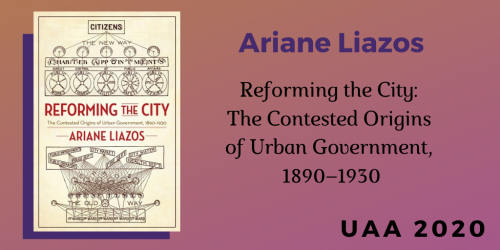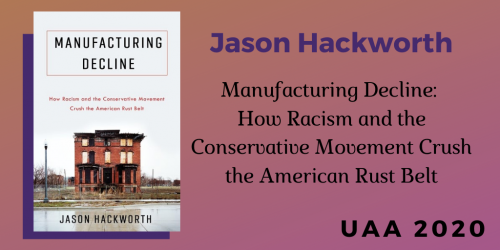Join Lowell Frye on a Tour of Our UAA 2020 Virtual Exhibit Booth
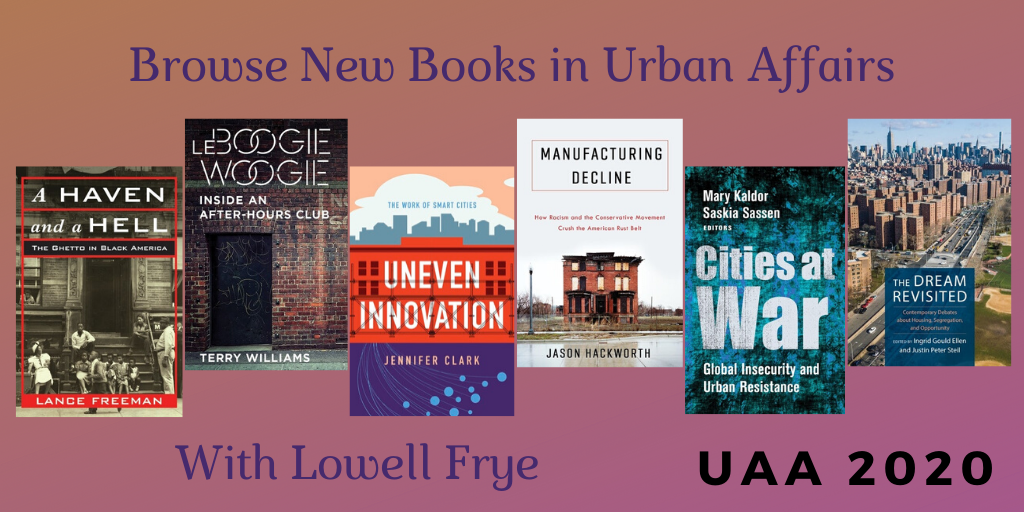
Hello, and welcome to Columbia University Press’s virtual booth for the Urban Affairs Association conference! My name is Lowell Frye, and I’m an associate editor here at the press, acquiring books in urban studies. I’m thrilled to be able to give you a quick tour of the booth and to tell you about some of the fantastic recent books in urban studies.
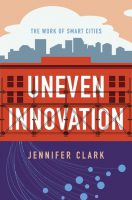 Of course, it’s unfortunate that I’m doing so on the CUPblog under such unusual circumstances rather than in person in the exhibit hall of the conference. But our current situation makes this a particularly important time to reflect on the exciting new work being done in urban studies. We now have both a need and an opportunity to think about how and why city life works in order to reenvision it for the future. While the topics of the books I’ll show off today vary widely—from smart cities to cities at war—all share the same belief in the importance to any attempt to create a new and better future of understanding where we are now and how we got here.
Of course, it’s unfortunate that I’m doing so on the CUPblog under such unusual circumstances rather than in person in the exhibit hall of the conference. But our current situation makes this a particularly important time to reflect on the exciting new work being done in urban studies. We now have both a need and an opportunity to think about how and why city life works in order to reenvision it for the future. While the topics of the books I’ll show off today vary widely—from smart cities to cities at war—all share the same belief in the importance to any attempt to create a new and better future of understanding where we are now and how we got here.
We’ll start the tour with a brand new book (and one with a really striking cover, I must say): Uneven Innovation. Much has been made over the past few years about how technological innovation will (and should) change the way that cities offer public services, but Jennifer Clark makes the case that we need to take a close look at who is benefitting from these initiatives and who isn’t.
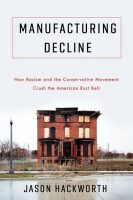 Upending a very different popular narrative is Manufacturing Decline. The typical story told of cities in the Rust Belt in the twentieth century is one of inevitability: changing economic realities necessarily lead to decline. However, Jason Hackworth convincingly argues that, far from a fait accompli, changes in the fortunes of Rust Belt cities are the result of a conservative political strategy to incentivize and capitalize on racial divisions in order to win elections and enact policies that would otherwise be unpalatable for voters.
Upending a very different popular narrative is Manufacturing Decline. The typical story told of cities in the Rust Belt in the twentieth century is one of inevitability: changing economic realities necessarily lead to decline. However, Jason Hackworth convincingly argues that, far from a fait accompli, changes in the fortunes of Rust Belt cities are the result of a conservative political strategy to incentivize and capitalize on racial divisions in order to win elections and enact policies that would otherwise be unpalatable for voters.
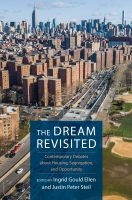 Even if they want to, though, how can cities address the kinds of complex and deeply rooted problems that result from historic (and current) policy? This is the question that motivated Ingrid Gould Ellen and Justin Peter Steil to bring together a wide range of voices to discuss difficult and divisive topics of race, inequality, opportunity, and housing in The Dream Revisited. It’s a fascinating collection that demonstrates just how differently reasonable people can approach and try to solve a problem. But the thoughtfulness of the debates and the way that the divergent opinions on display show the issues in question from many different angles make this an ideal volume for teaching.
Even if they want to, though, how can cities address the kinds of complex and deeply rooted problems that result from historic (and current) policy? This is the question that motivated Ingrid Gould Ellen and Justin Peter Steil to bring together a wide range of voices to discuss difficult and divisive topics of race, inequality, opportunity, and housing in The Dream Revisited. It’s a fascinating collection that demonstrates just how differently reasonable people can approach and try to solve a problem. But the thoughtfulness of the debates and the way that the divergent opinions on display show the issues in question from many different angles make this an ideal volume for teaching.
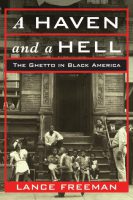
 All of these difficult questions of race, inequality, opportunity, and housing come to a head in discussions of the place of the Black ghetto in U.S. urban history. A Haven and a Hell is a nuanced examination of the role that predominantly Black urban neighborhoods played, both for ill and for good, in African American culture from the late nineteenth century up to the present day.
All of these difficult questions of race, inequality, opportunity, and housing come to a head in discussions of the place of the Black ghetto in U.S. urban history. A Haven and a Hell is a nuanced examination of the role that predominantly Black urban neighborhoods played, both for ill and for good, in African American culture from the late nineteenth century up to the present day.
So far we’ve had been focusing on issues specific to the United States, but let’s take a break from our focus on U.S cities to look at another recently published book that is truly global in approach: Cities at War, edited by Mary Kaldor and Saskia Sassen, which features in-depth ethnographic studies looking at how insecurity and inequality interact with the urban environment in cities ranging from Bogota to Kabul.
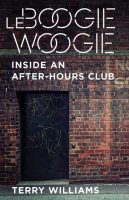 Last but certainly not least, we’ll end our tour in Columbia University Press’s home city, New York, and with something of a bang! For years, Terry Williams has been known for his ability to connect with and draw out people living on the margins of society. In his most recent book, he takes us inside the world of an after-hours cocaine club, the eponymous Le Boogie Woogie, to tell the story of what happens to neighborhood institutions that exist outside of mainstream society when the demographics of their neighborhoods change.
Last but certainly not least, we’ll end our tour in Columbia University Press’s home city, New York, and with something of a bang! For years, Terry Williams has been known for his ability to connect with and draw out people living on the margins of society. In his most recent book, he takes us inside the world of an after-hours cocaine club, the eponymous Le Boogie Woogie, to tell the story of what happens to neighborhood institutions that exist outside of mainstream society when the demographics of their neighborhoods change.
That concludes our whirlwind tour of the great new books here in our virtual booth! I’m excited to take up, in a physically distanced but still social manner, the conversations we would have had about exciting book ideas and developments in the field: you can reach me by e-mail or on Twitter, where you can find me @lowellfrye (and where I’m also hoping to see photos of pets, paintings of beautiful landscapes, recordings of funny quarantine events, or anything else to break up the seemingly constant stream of bad news!).
Thanks again for tuning in, and stay healthy.

